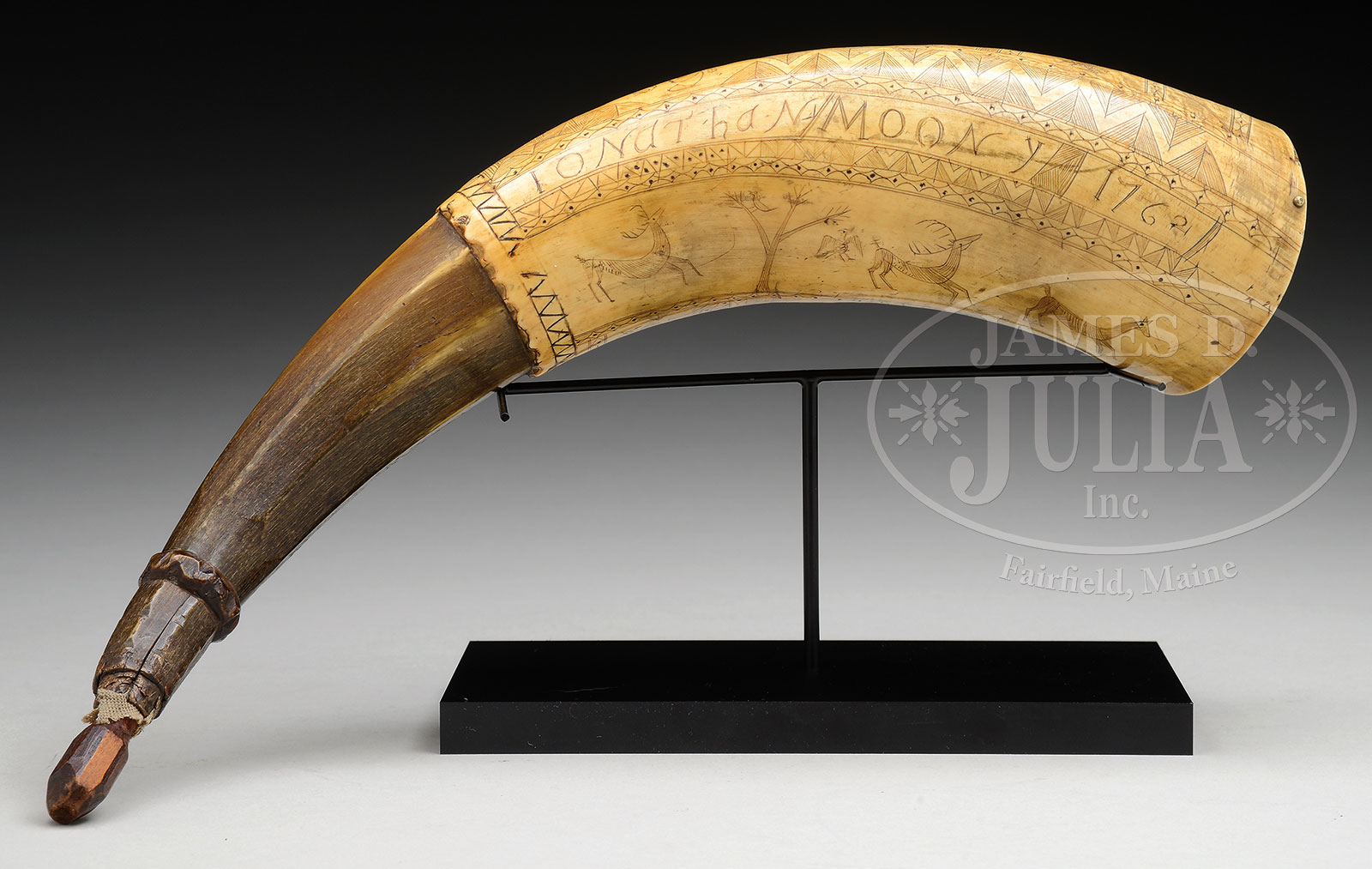| Image | Lot | Price | Description |
|
3573
|
$3,450.00
|
Revised: 4/9/2017
Please Note: There is a typographical errors in the description. 1) In the middle of the first sentence…. including a St. Andrews or St. Patrick cross, possibly of note Irish or Scottish heritage…”of note” SHOULD BE denoting. 2) The 6th sentence…Whether his son Jonathan served under him I cannot say the records of that time are not cohesive but Jonathan did serve in the Rev War….”I cannot say the”…SHOULD BE…”I cannot say as the”…. FINE 1762 DATED FRENCH AND INDIAN WAR PERIOD POWDER HORN OF JONATHAN MOONY.The 14″ long and 3″ at base, finely scrimshawed “JONATHAN MOONY 1762″ all in long central 7” panel with full coverage decoration outside of the inscription depicting a landscape with deer, a bird in a tree, a sailing vessel, fish, two spread wing patriotic American eagles, geometric and floral folky panels including a St. Andrews or St. Patrick cross, possibly of note Irish or Scottish heritage, recessed faceted throat, chip-carved raised ring, ending with a domed pine butt plug fastened with brass pins. Jonathan Moony/Mooney was b. 1744 in Lee, New Hampshire, and died 1823 in Eaton, New Hampshire [DAR/SAR]. He’d have been a young man of about 18 in 1762, the date on the horn, but that was a grown man in those times. He was the son of Hercules Mooney (1715-1800), who immigrated from Ireland to New Hampshire in the 1830s before Jonathan was born. It was a literate family, Hercules was a teacher. Hercules was captain of a New Hampshire provincial regiment in the French and Indian War. Whether his son Jonathan served under him I cannot say the records of that time are not cohesive but Jonathan did serve in the Rev War. Although he lived and died in New Hampshire, he served in the Massachusetts Continental Line and appears in the Continental Army pay accounts in 1777. Meanwhile, father Hercules was a delegate to the provincial congress in New Hampshire and a lieutenant colonel in the Continental Army. ,Indications are that father and son were close: Jonathan named his son Hercules. The significance of ships on the horn is conjecture, but it is known that New Hampshire volunteers were with the British when they captured Havana from the Spanish on August 10, 1762. CONDITION: Very good to fine overall, good surface and patina, like where at high areas, old chipping and crack at spout, carved wooden plug fits loosely. 51723-2 JS (3,000-5,000) – Lot 3573
Auction: Firearms - April 2017 Please Note: All prices include the hammer price plus the buyer’s premium, which is paid by the buyer as part of the purchase price. The prices noted here after the auction are considered unofficial and do not become official until after the 46th day. |


